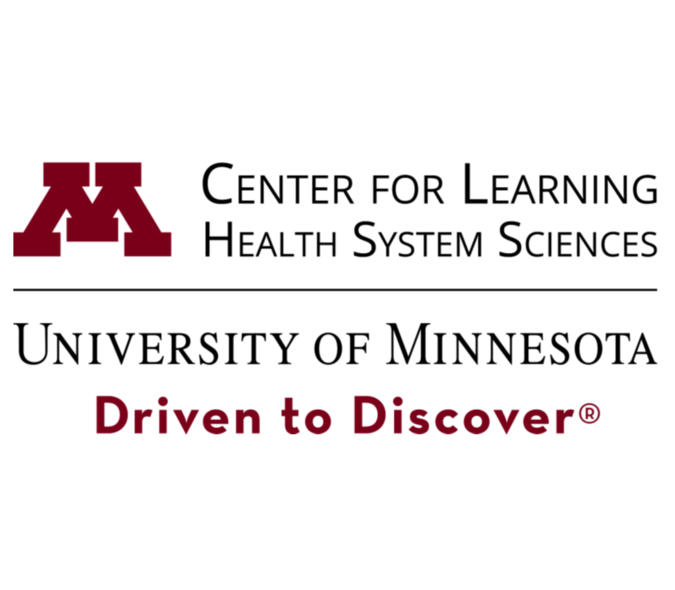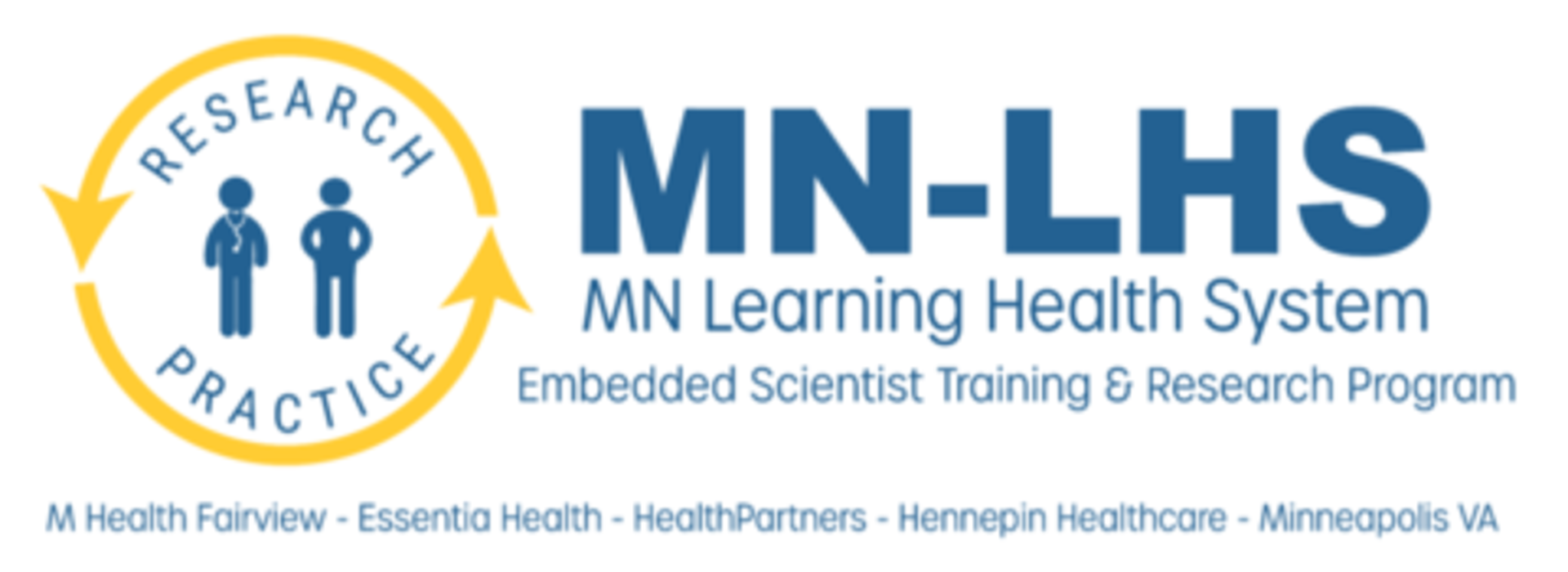
MN-LHS Program Accepts First Cohort of Fellows
The Minnesota Learning Health System Career Development Program (MN-LHS) recently welcomed its first cohort of MN-LHS fellows, a new profile of trainees the program is accepting.
In the past, MN-LHS has trained investigators to conduct embedded patient-centered research. These investigators, or MN-LHS scholars, are provided funding, mentorship, education, and other support to start their research careers in learning health system sciences.
Starting in 2024, MN-LHS received funding from AHRQ and PCORI as part of the LEaRN (LHS E-STaR of the North) initiative. This award allowed the program to offer training opportunities to a wider variety of individuals at different stages of their career development. Fellows, who are Predoctoral or Postdoctoral trainees, are a new profile of learners MN-LHS is accepting as a result of this funding.
Most MN-LHS fellows are enrolled in a separate training program, such as clinical fellowship, residency training, postdoctoral research training, or predoctoral training. MN-LHS coordinates with the fellow’s primary training program and provides mentorship, instruction, and other activities through an individualized development plan.
MN-LHS welcomed four new fellows to the program this year.
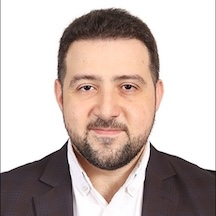
Mohannad Al-Tarakji, MD
Dr. Al-Tarakji is a Clinical Informatics Fellow and surgeon with a passion for optimizing healthcare. He received an MD from Damascus University, followed by surgical training and a research fellowship at the American University of Beirut. Dr. Al-Tarakji went on to complete residencies in General Surgery and Acute Care Surgery at Hamad Medical Corporation, Qatar. He delved into medical ethics at the University of Chicago's MacLean Center and honed his critical care skills at the University of Minnesota. Now, through his Fellowship, he is using his expertise with technology to revolutionize physician training. A prolific researcher and collaborator, Dr. Al-Tarakji tackles critical issues like AI's impact on healthcare costs and ethics.
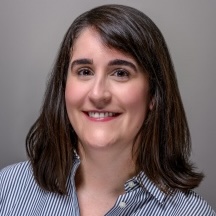
Melissa Gunderson, MD
Dr. Gunderson is a General Surgery resident and Clinical Informatics fellow at the University of Minnesota. She completed her medical degree at the University of North Dakota. Her clinical interests include endocrine surgery, acute care surgery and surgical critical care. Dr. Gunderson’s research interests include quality and safety in the pre, intra and post op periods and the application of informatics principles to improve surgical care. Additionally, she is interested in the use of data sharing platforms, remote patient monitoring and artificial intelligence tools to improve clinical workflows, reduce clinician burnout and optimize and expand patient care.
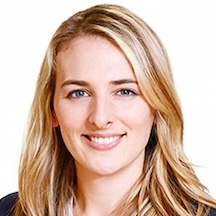
Carly Hudelson, MD, MS
Dr. Hudelson is an internal medicine physician and Clinical Informatics fellow. She obtained a MS in Evidence-based Social Intervention at the University of Oxford before completing medical school at Harvard and residency at the University of Washington. Dr. Hudelson is interested in the meaningful application of digital health technologies to primary care settings to better engage and support patients, with her LHS project focused on the evaluation of AI scribe tools.
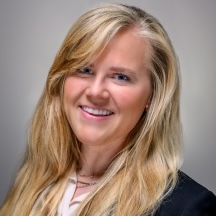
Lindsay Welton, MD
Dr. Welton is a General Surgery Resident at the University of Minnesota. She earned her Doctor of Medicine from the University of Colorado School of Medicine and is currently earning a Master of Arts in Medical Gerontology from the University of Southern California while completing her residency professional development and research years. Her research and clinical interests are in colorectal surgery and the care of our aging population. Her LHS project focuses on screening for fecal incontinence in the primary care setting to increase diagnostic and colorectal clinic referral rates in efforts to improve treatment of this often underdiagnosed condition. After training, she aspires to have a vibrant clinical practice in colon and rectal surgery and to be an expert in geriatric surgery including shared decision-making, outcomes assessment, and optimization of care for this important and growing population.



